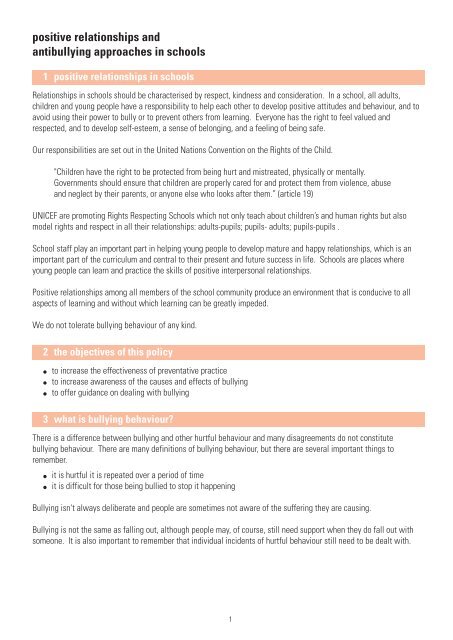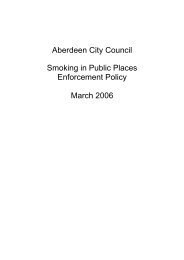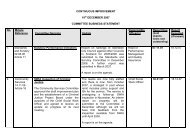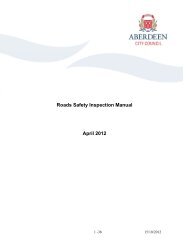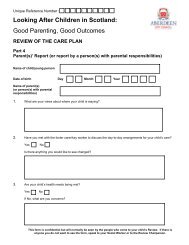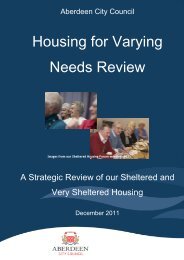Anti Bullying Policy - Aberdeen City Council
Anti Bullying Policy - Aberdeen City Council
Anti Bullying Policy - Aberdeen City Council
Create successful ePaper yourself
Turn your PDF publications into a flip-book with our unique Google optimized e-Paper software.
positive relationships and<br />
antibullying approaches in schools<br />
1 positive relationships in schools<br />
Relationships in schools should be characterised by respect, kindness and consideration. In a school, all adults,<br />
children and young people have a responsibility to help each other to develop positive attitudes and behaviour, and to<br />
avoid using their power to bully or to prevent others from learning. Everyone has the right to feel valued and<br />
respected, and to develop selfesteem, a sense of belonging, and a feeling of being safe.<br />
Our responsibilities are set out in the United Nations Convention on the Rights of the Child.<br />
"Children have the right to be protected from being hurt and mistreated, physically or mentally.<br />
Governments should ensure that children are properly cared for and protect them from violence, abuse<br />
and neglect by their parents, or anyone else who looks after them.” (article 19)<br />
UNICEF are promoting Rights Respecting Schools which not only teach about children’s and human rights but also<br />
model rights and respect in all their relationships: adultspupils; pupils adults; pupilspupils .<br />
School staff play an important part in helping young people to develop mature and happy relationships, which is an<br />
important part of the curriculum and central to their present and future success in life. Schools are places where<br />
young people can learn and practice the skills of positive interpersonal relationships.<br />
Positive relationships among all members of the school community produce an environment that is conducive to all<br />
aspects of learning and without which learning can be greatly impeded.<br />
We do not tolerate bullying behaviour of any kind.<br />
2 the objectives of this policy<br />
●<br />
●<br />
●<br />
to increase the effectiveness of preventative practice<br />
to increase awareness of the causes and effects of bullying<br />
to offer guidance on dealing with bullying<br />
3 what is bullying behaviour?<br />
There is a difference between bullying and other hurtful behaviour and many disagreements do not constitute<br />
bullying behaviour. There are many definitions of bullying behaviour, but there are several important things to<br />
remember.<br />
●<br />
●<br />
it is hurtful it is repeated over a period of time<br />
it is difficult for those being bullied to stop it happening<br />
<strong>Bullying</strong> isn't always deliberate and people are sometimes not aware of the suffering they are causing.<br />
<strong>Bullying</strong> is not the same as falling out, although people may, of course, still need support when they do fall out with<br />
someone. It is also important to remember that individual incidents of hurtful behaviour still need to be dealt with.<br />
1


